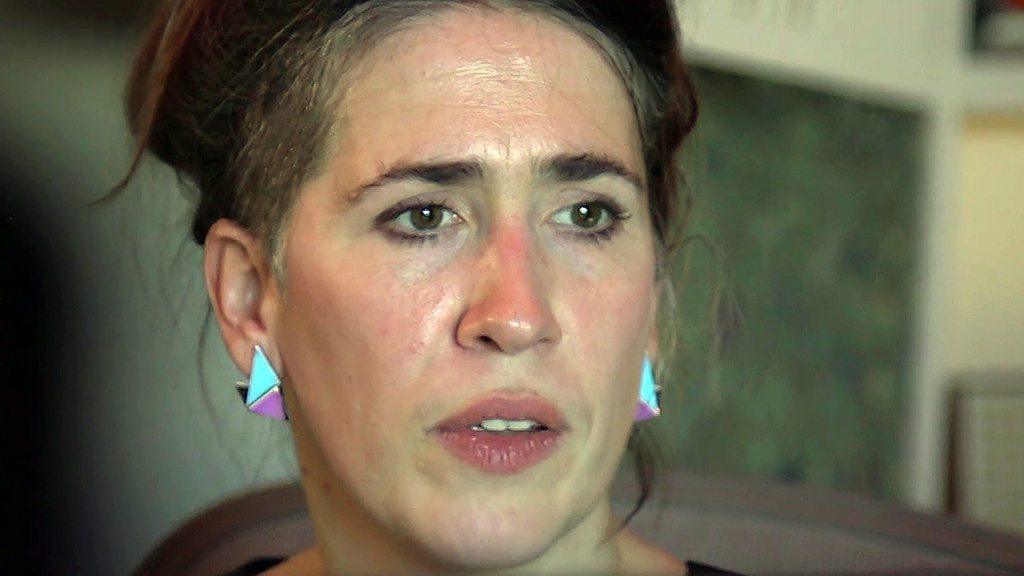Nick Cave says ChatGPT's AI attempt to write Nick Cave lyrics 'sucks'
- Published
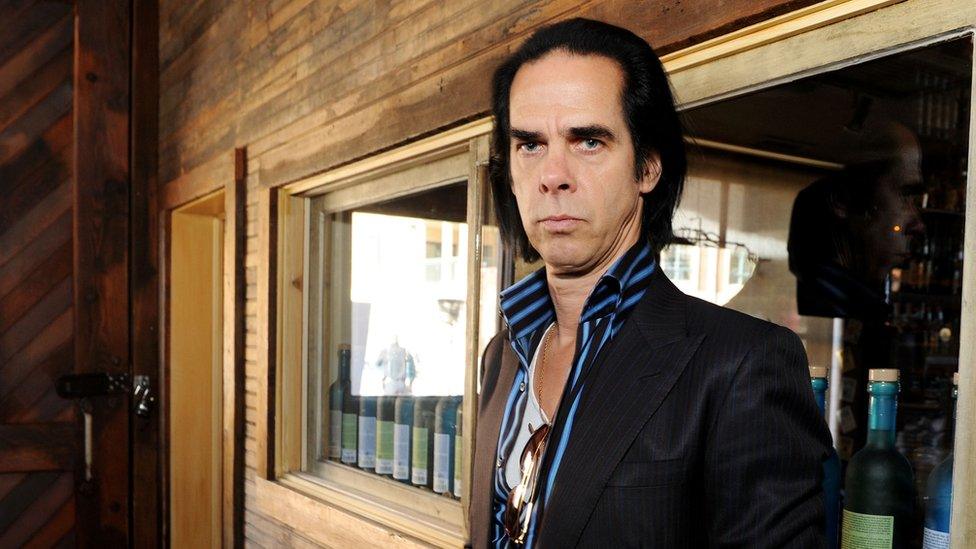
Nick Cave said the artificially-generated lyrics "sucked"
Nick Cave has written a scathing review of an artificial intelligence system that tried to write a song "in the style of Nick Cave".
The Bad Seeds frontman responded after a fan sent him lyrics written by ChatGPT, a chatbot that can be directed to imitate other people's styles.
It took a credible swing at Cave's dark religious imagery, with lyrics like: "I am the sinner, I am the saint."
But the singer called the results "a grotesque mockery" and "a travesty".
"What ChatGPT is, in this instance, is replication as travesty," Cave wrote in his newsletter The Red Hand Files, external.
"It could perhaps in time create a song that is, on the surface, indistinguishable from an original, but it will always be a replication, a kind of burlesque.
"Songs arise out of suffering, by which I mean they are predicated upon the complex, internal human struggle of creation and, well, as far as I know, algorithms don't feel. Data doesn't suffer.
"ChatGPT has no inner being, it has been nowhere, it has endured nothing, it has not had the audacity to reach beyond its limitations, and hence it doesn't have the capacity for a shared transcendent experience, as it has no limitations from which to transcend."
'The apocalypse is on its way'
The singer added that "dozens" of fans, "most buzzing with a kind of algorithmic awe", had sent him songs produced by ChatGPT since it became available last November.
He did not, however, share their enthusiasm.
"I understand that ChatGPT is in its infancy but perhaps that is the emerging horror of AI - that it will forever be in its infancy, as it will always have further to go, and the direction is always forward, always faster.
"It can never be rolled back, or slowed down, as it moves us toward a utopian future, maybe, or our total destruction. Who can possibly say which? Judging by this song 'in the style of Nick Cave' though, it doesn't look good.
"The apocalypse is well on its way. This song sucks."
Imogen Heap: How AI is pushing music creativity
Cave, who is currently writing a new album with the Bad Seeds, added: "It may sound like I'm taking all this a little too personally, but I'm a songwriter who is engaged, at this very moment, in the process of songwriting.
"It's a blood and guts business, here at my desk, that requires something of me to initiate the new and fresh idea. It requires my humanness."

Nick Cave lyrics by ChatGPT:
Verse 1: In the depths of the night, I hear a call/A voice that echoes, through the hall/It's a siren's song, that pulls me in/Takes me to a place, where I can't begin
Chorus: I am the sinner, I am the saint/I am the darkness, I am the light/I am the hunter, I am the prey/I am the devil, I am the saviour
Verse 2: I walk the streets, with my head held high/I've got my demons, but I'll make them fly/I'll dance with the devil, and I'll play his game/I'll be the one, to call his name

We asked ChatGPT whether imitating Nick Cave's lyrics was ethical:
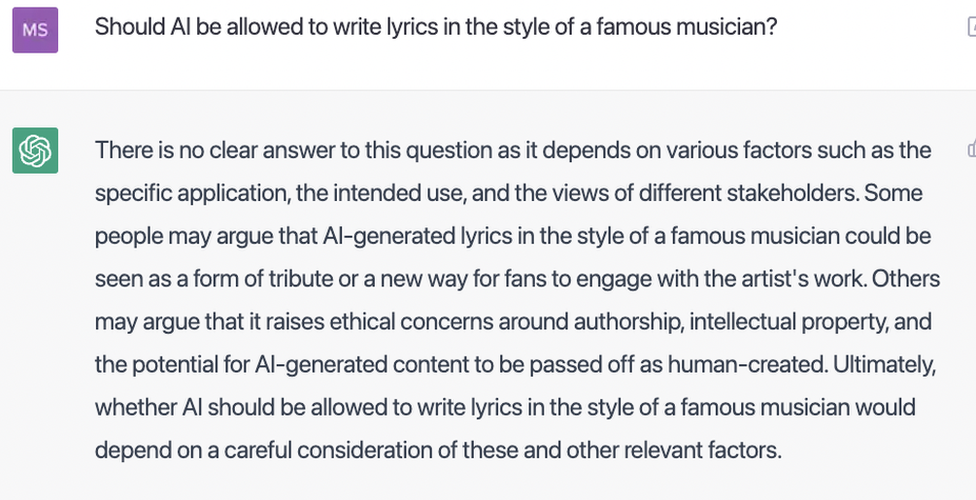
ChatGPT launched last year, and is trained on large amounts of data that enable it to make predictions about how to string words together in a meaningful way.
Students have used it to write essays, programmers have asked it to code websites, external, and Ryan Reynolds made it script an advert, external for his mobile phone network.
But the software - and others like it - has raised questions about ethics and copyright.
ChatGPT's training data includes millions of books, webpages, forum posts and Wikipedia pages, which could conceivably include portions of Nick Cave's copyrighted output.
But there is no legal protection for songs and lyrics "written in the style of" another artist, unless they directly replicate protected lyrics or passages of music.
"I think courts and our general instinct would say, 'Well, if an algorithm is only fed Beyoncé songs and the output is a piece of music, it's a robot," Meredith Rose, policy counsel at Public Knowledge, told The Verge last year, external.
"It clearly couldn't have added anything to this, and there's nothing original there."
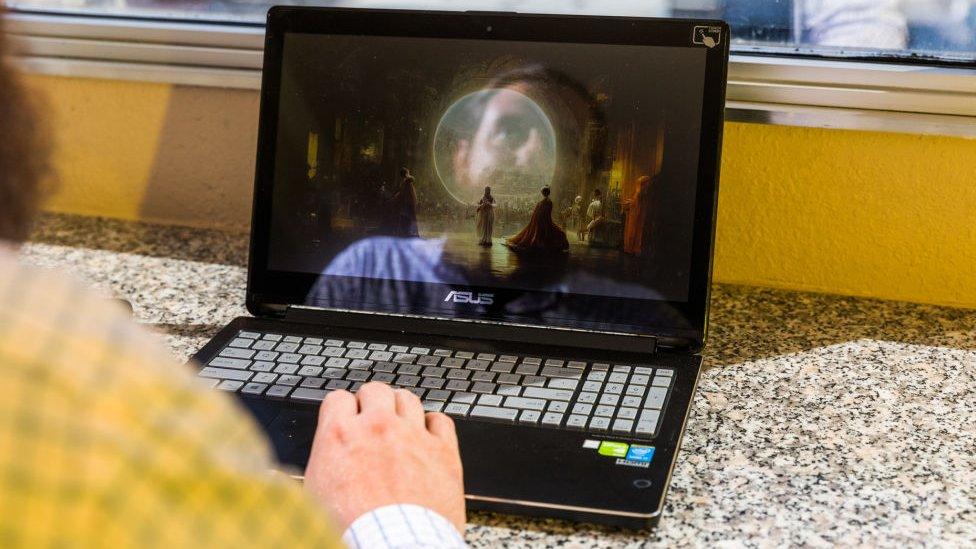
Jason Allen won a US art prize with a 'painting' he created on his laptop
The issue was thrust into the spotlight last year when Jason M Allen won an art prize with a work he had created using Midjourney, an artificial intelligence system that produces images from simple text prompts.
"This thing wants our jobs, it's actively anti-artist", wrote California-based movie and game concept artist RJ Palmer in a tweet liked more than 25,000 times.
In subsequent posts, he highlighted how well the output of AI systems could imitate living artists. In one case he examined, the AI even attempted to reproduce artists' signatures.
"Culturally, it just doesn't seem like it's going away," technologist Andy Baio recently told US business magazine Fast Company, external.
"It may just be a thing that people have to live with. The only way to fight this would be in court, and artists don't have those kinds of resources."
However, he added, it is possible that a company like Disney could take AI firms to court and force them to reveal the content their software was trained on - which would ultimately force them to keep their data above board.
Whatever happens, Nick Cave is certain that AI will never capture the raw humanity of his own work.
But he did highlight one line in the AI-generated song that spoke to him.
"'I've got the fire of hell in my eyes', says the song 'in the style of Nick Cave', and that's kind of true," he wrote.
"I have got the fire of hell in my eyes - and it's ChatGPT."
Related topics
- Published10 November 2017
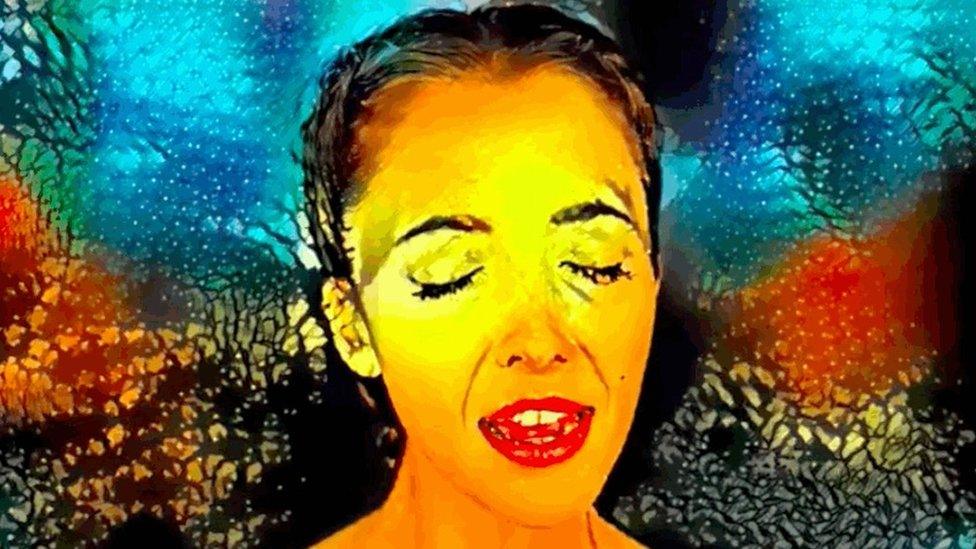
- Published13 September 2022
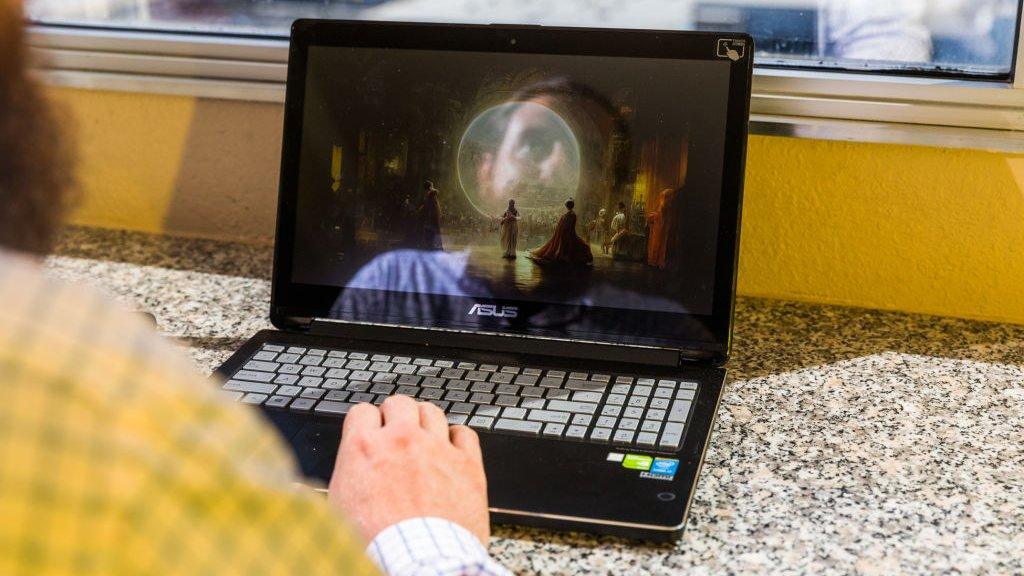
- Published13 January 2023
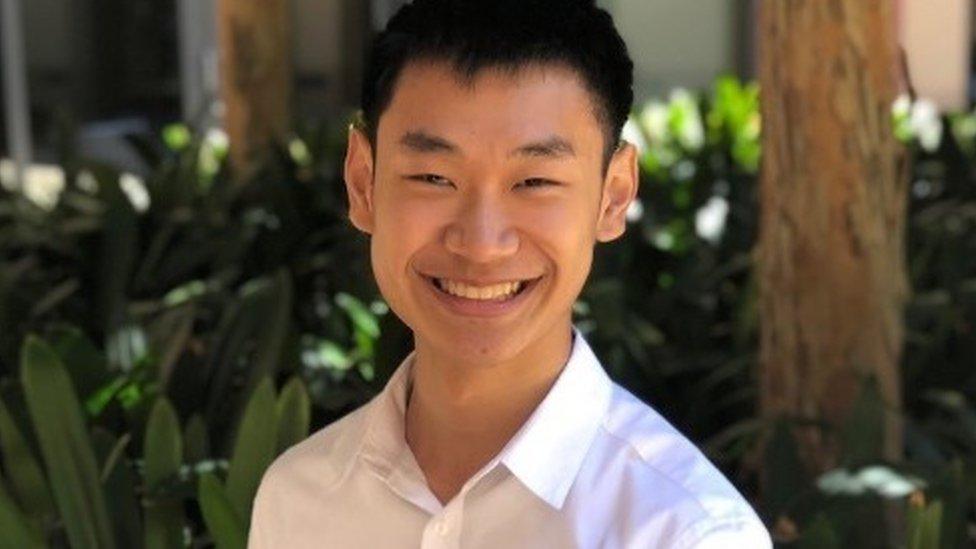
- Published10 January 2022

- Published15 April 2020
